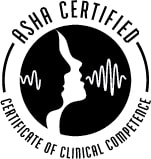"A surprisingly high percentage of children who start school have disabilities--
but not in the traditional sense. They may not have mental or physical impairments,
but they find school overwhelming for the simple fact that they have not learned
how to learn. " - Michael L. Robinson
Today I ran across an magazine article called "Getting a Jump on Learning" (you can read the entire article too by clicking HERE). The author, Michael L. Robinson, supports the idea of helping preschoolers, ALL preschoolers prepare for kindergarten by gaining the capacity to learn.
These are the main strategies that Robinson suggests:
Wow, pretty awesome advice. My background in speech and language totally supports all of these ideas. Active learning really does help you encode new information better, which leads to better myelination of the nerve pathways, which leads to better retention and retrieval. Learning through our senses promotes active learning, and also provides language regarding function words and adjectives. Pointing out details and differences will help give your child a rich vocabulary that he can use when organizing his thoughts and will increase comprehension. Giving your child opportunities to succeed will help him learn persistence and gain self-confidence. Try to provide opportunities that challenge your child but are also within his reach. It is no good failing and failing again, kids need to be able to be successful.
Don't get so stressed about learning letters and numbers that you are missing these kind of learning opportunities. There is SO much more to learning than rote memorization, sometimes I think parents feel pressure to see their kids perform rather than help them learn. Relax, have fun, and talk talk talk to that preschooler!
These are the main strategies that Robinson suggests:
- First, remember that learning is active, not passive. We don’t receive knowledge:
- we experience it.
- Second, make learning fun.
- Third, teach your child using all five of his or her senses.
- Fourth, point out detail and differences in objects.
- Fifth, and perhaps most important, program your child to succeed.
Wow, pretty awesome advice. My background in speech and language totally supports all of these ideas. Active learning really does help you encode new information better, which leads to better myelination of the nerve pathways, which leads to better retention and retrieval. Learning through our senses promotes active learning, and also provides language regarding function words and adjectives. Pointing out details and differences will help give your child a rich vocabulary that he can use when organizing his thoughts and will increase comprehension. Giving your child opportunities to succeed will help him learn persistence and gain self-confidence. Try to provide opportunities that challenge your child but are also within his reach. It is no good failing and failing again, kids need to be able to be successful.
Don't get so stressed about learning letters and numbers that you are missing these kind of learning opportunities. There is SO much more to learning than rote memorization, sometimes I think parents feel pressure to see their kids perform rather than help them learn. Relax, have fun, and talk talk talk to that preschooler!

 RSS Feed
RSS Feed
